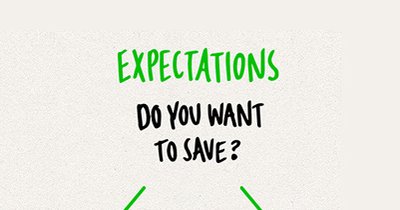Kiwibank works with Ngā Tangata Microfinance, to help them provide small, fair interest-free loans to those on lower incomes. Ngā Tangata helps them break the cycle of debt, either by saving them from the shackles of loan sharks and payday lenders or by helping them purchase productive assets.
We caught up with Ngā Tangata Executive Officer Robert Choy this Money Week to talk about the hardest questions people have on debt in New Zealand.
What are the most dangerous traps people fall in to when taking out debt?
Well unfortunately, much of the credit environment in our country has been populated by third tier lenders, these guys predominantly target low income families. The companies provide loans with interest rates ranging from 20-40%, it’s not good but it seems manageable for some – then comes the kicker, it’s an even higher interest rate if you miss payments, and then they stack on numerous extra penalty charges.
Payday loans are meant for short term lending and that’s how they advertise them, but it’s at an outrageous cost, they often charge at least 1.2% per day (or 438% annually). To put that in perspective, if a family gets a loan of $800 within a month they now owe $1214.53, in two months it’s at $1,843.85 and after three months the amount has increased to $2637.19. That doesn’t even include fees and other charges.
While truck vendors or mobile traders often charge no interest on purchases, their prices are inflated up to three times the normal sticker price. Plus administration and fees will ensure they reap more than 100% profit on every transaction. That’s because, unlike many parts of the world, in New Zealand there is no legal limit on interest rates or on the total cost of credit. Without these protections, it’s very easy for families to get into trouble. With every company having different fees, interest rates, and charges, it can be very hard for people to fully understand the real cost to them of taking out a loan.
High interest debt compounded by excessive charges can quickly become unmanageable. The unsustainable repayments cause stress between family members, limit the money they have to buy food and other essentials, and reduces the households remaining assets. But it’s not just the family alone that will be affected, whole communities are affected when friends and neighbours are roped into this credit environment.
If you’re stuck with a bad credit score, what can you do?
The best way to improve your credit score is one payment at a time. It’s a process but by making sure you pay every bill in full by the due date, you’ll gradually be able to build your score back up. Defaulting on bill payments will negatively affect your credit score, especially if they are transferred to a collection agency. One of the reasons that Ngā Tangata operates a micro financing scheme is to help people who may have had a bad credit score in the past,successfully repay a manageable and fair loan. We give you a letter when you’ve successfully repaid a loan, this can be used to highlight that achievement to your bank or other parties.
What’s the best tip that you can give to avoid that slippery slope of problem debt?
The first step is regular small savings. It should be an amount that fits into your weekly budget for use in emergencies, or ideally you can gradually save it up to build a reserve. Even $5 a week can build up over time to a sizeable amount.
It’s not always easy but you should make sure you take the time to read all the terms and conditions before taking out a loan or accessing credit. It’s you alone who’ll have to face the repercussions if you don’t understand the interest charges, fees and penalties. If you don’t think that you’ve received all the information it’s you’re right to ask the person you’re talking to, keep asking until they’ve explained everything to you. It’s their job and responsibility to do this.
Make sure you avoid the traps and pitfalls of the unscrupulous lenders and mobile traders I talked about earlier.
Finally try, if your budget allows it, to repay more than the minimum each month. Even a little bit will help you to reduce the total cost of the loan that you’re taking out.
When do you think it’s a good idea to use debt?
It’s important to distinguish between the characteristics of good, neutral and bad debt before making a decision.
Good debt is when you buy something that increases in value (for example a student loan for tertiary education) and that increase would be more than the interest you might pay on the debt.
Neutral debt might be for something like your home, where it made sense to own a house, but you wouldn't necessarily make a profit unless you eventually sell it and make a profit.
Bad debt is for things that decrease in value or might have no value after a short time, like the latest mobile phone or laptop. If you need to go into debt, it’s helpful to know what types of debt to avoid.
Before considering the use of credit or going into debt, make sure you prepare a budget. You’ll be able to map out your financial situation and whether you can really afford the repayments. There’s no benefit to burying your head in the sand and blindly entering into debt. A budget deficit is where you spend more than you earn; it doesn’t work and will quickly move you into worse difficulties . The eventual juggling of paying off your debt and having enough for food and to live on will do more than create financial hardship, it’ll ramp up your stress making you even less likely to be able to budget sensibly. Debt that becomes unmanageable will affect your credit score.
If you’ve tried it on your own or you really don’t know where to start and need help, where can you find support?
You’re not alone and no matter how bad it’s gotten, there are people who can help. Budgeting services offer free, confidential budgeting advice. With a financial mentor, you can receive advice and support to prepare a budget and plan to manage your money and work your way out of debt.
Ngā Tangata work with capital from Kiwibank and in partnership with local budgeting services, we’re one of the ethical lenders who aim to address the villainy of debt. We’re creating a tool to lift people out of poverty. Paying off a high interest debt and replacing it with a loan to ethical lenders like us can at times release $20, $50, $70 or even more back into the family budget each week. This provides much needed money for essential food or necessities that families stuck in a cycle of debt, have previously forsaken. A fundamental aspect of our kaupapa is to facilitate clients successfully paying off their loans and being supported in the long term towards financial independence.
It is slowly getting better in New Zealand. The Commerce Commission is taking increasing legal action against predatory lenders. In 2016 six mobile truck traders had to pay fines of more than $500,000. Recently an online loan company was required to refund $1.4 million in unreasonable fees to its borrowers.
We want to help build a just and equitable society but we can’t do it alone. If you have had experiences with a fringe lender where you feel there has been poor disclosure of the loan contract details, excessive fees charged or punitive actions taken against you, please contact the Commerce Commission. Other New Zealanders have likely experienced or been taken advantage of by the same lender, stepping up could change people lives.
This is intended as general information only. It does not take into account your financial situation and goals and is not personal advice. For more information on Nga Tangata and the dedicated people working to help break the cycle of debt, head to their site ngatangatamicrofinance.org.nz.



